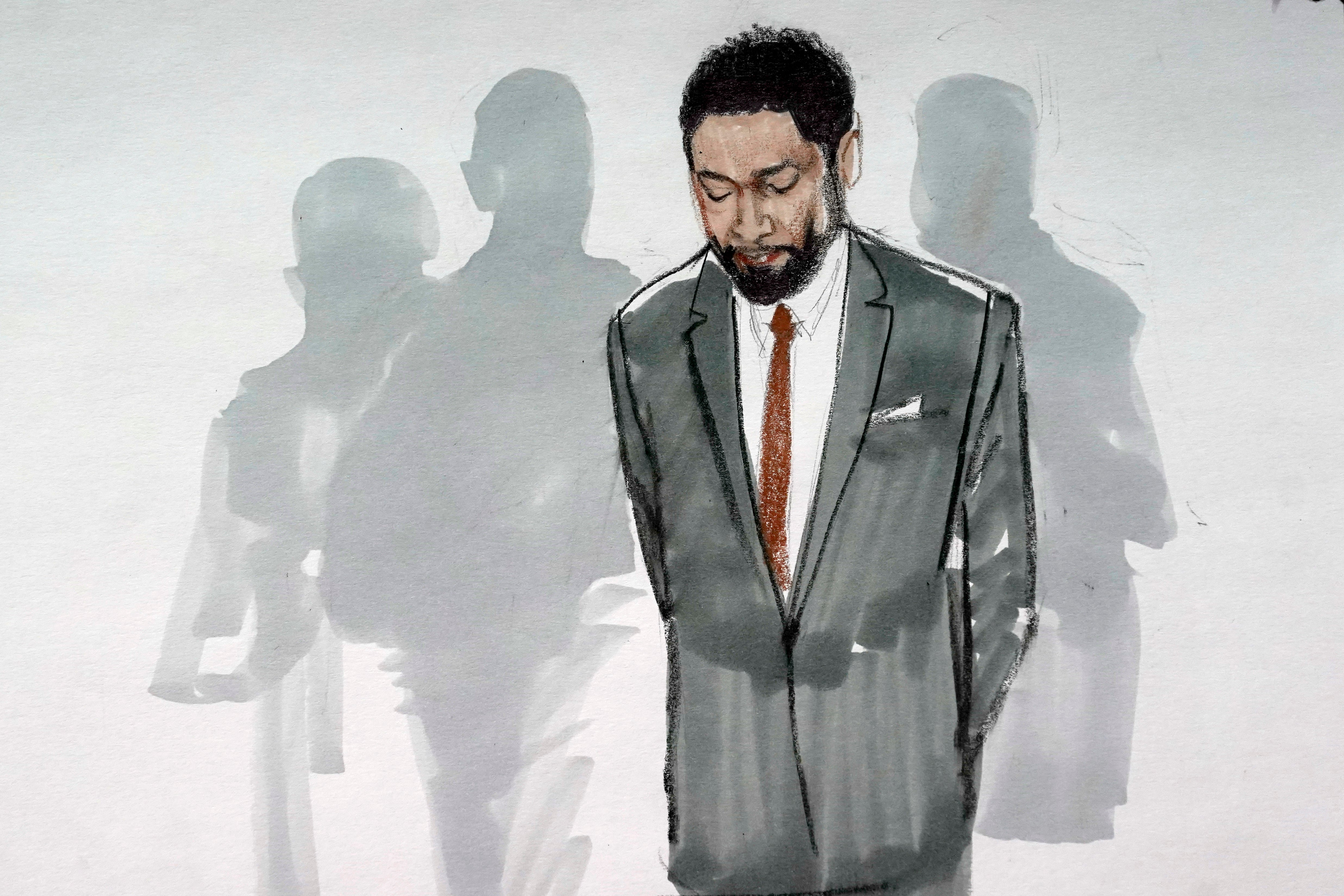What was Empire star Jussie Smollett convicted of over hoax hate crime attack?
Chicago actor to be sentenced over hoax attack
Former Empire actor Jussie Smollett returns to court in Chicago for sentencing on Thursday following his conviction for lying to city police about a racist and homophobic attack he claimed to have suffered in 2019 but which he actually staged and orchestrated himself.
Smollett, who is expected to continue to deny his role in the hoax hate crime, faces up to three years in prison for each of the five felony counts of disorderly conduct – the charge filed for lying to police – of which he was convicted. He was acquitted on a sixth count.
Because Smollett does not have an extensive criminal history and the conviction is for a low-level, non-violent crime, experts do not believe he will be sent to federal prison by Cook County Judge James Linn, although he could be ordered to serve up to a year in county jail. Alternatively, he could be placed on probation and sentenced to community service.
Smollett, who is Black and gay, reported to the Chicago Police Department in the early hours of 29 January 2019 that two men wearing ski masks had beaten him up on East Lower North Water Street in Streeterville near his apartment, placed a thin white noose around his neck, poured an unknown liquid over him and subjected him to a torrent of racist and homophobic verbal abuse before running off.
In December that year, the up-and-coming actor, formerly a child star in movies like The Mighty Ducks (1992) and North (1994), was convicted in a trial that included the testimony of two Nigerian-American brothers, Abimbola and Olabinjo Osundairo, who told jurors that Smollett had paid them to carry out the attack, giving them money for the ski masks and the rope and instructing them to do it within sight of a security camera so that they would be able to use the footage to publicise the incident.
Prosecutors said Smollett had told the siblings what offensive slurs to shout, specifying that they tell him he was in “MAGA country”, a reference to then-president Donald Trump’s “Make America Great Again” campaign slogan, indicating his apparent intention of exploiting the political as well as the racial and sexual tensions of the moment to advance his public profile.
Smollett testified that he did not recognise his two “assailants” and did not know that they were the men attacking him, despite having met them when they worked as extras on the HBO show that made his name.
The sheer scope of the police investigation involved in Smollett’s hoax was a major aspect of the trial and is key in a $130,000 pending lawsuit that the city has filed against him to recover the cost of police overtime, so Judge Linn could also order him to pay a hefty fine and restitution.
Smollett’s lead attorney, Nenye Uche, has said that he will ask the judge to dismiss the charges before sentencing, although that is unlikely to be granted, an eventuality that (subject to appeal) would close the final chapter on a notorious criminal case that has attracted headlines across the world.

During Thursday’s hearing, prosecutors and the defendant’s attorneys will get a chance to present witnesses and Smollett himself will be entitled to make a statement.
He could again protest his innocence and might also remind the judge of his extensive history of volunteering and donating to charitable causes.
He might also argue that the detrimental impact the ordea has had on his promising career as an actor is already punishment enough.
Unlike the trial, Judge Linn has agreed to allow photographers and a television camera inside his court for the hearing – meaning the public will, for the first time, get to see and hear Smollett speak about the affair.
Additional reporting by agencies



